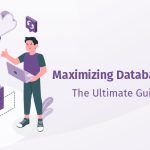YouTube Run Ads On Small Creators: There has been a recent development with respect to which creators will now be subjected to be ads on their videos.
According to the newly updated youtube terms of Service applicable from 18th November 2020, Youtube will now be running ads on small creators’ videos.
This update in policy came out because these small creators were not big enough to get enrolled themselves in the partner program.
In the refreshed terms of administration, YouTube expressed that it will currently play promotions on the substance of more modest makers without marking them up for YouTube’s Monetization program otherwise called a Partner program.
Prior to this, YouTube only used to run promotions on those creators who were individuals from the YouTube Partner Program i.e were part of the program.
YouTube Run Ads On Small Creators, What’s more, these were just huge creators having a set edge of high endorser tally and watch hours.
To turn into an individual from the YouTube Partner Program and subsequently, adapt your channel, a maker ought to have at least 4,000 public watch hours and 1000 subscribers in the course of the last 12 months.
Earlier, YouTube only used to run ads on videos from those small channels that don’t meet those criteria or are not part of the youtube partner program under special circumstances, such as the channel was previously a YPP member.
Advertising is one of the major sources of income for YouTube and its parent organization, Alphabet. An immense lump of income is produced from the advertisements themselves.
In the last quarter, Google generated around $5 billion through advertisements only. Content creators likewise depend on advertisements to get their cut.
Presently, YouTube will have the option to run more promotions on its platform without offering income to the content makers. A few makers have kept their channel ad-free, intentionally.
Nonetheless, with these new changes, YouTube will run advertisements and will hamper the advertisement-free experience, which the creators want to give to its audience.
In addition to this change to its Right to Monetize section, YouTube has also added a new thing called “faces” to the kind of information people are not allowed to collect from its service.
It explained that the website never allowed the collection of any information which can be personally identifiable, although they have altered its language in the ToS to be extremely explicit about what kind of data users can and cannot collect.
Initially, YouTube is rolling out these changes in the US, and the rest of the world after it.























